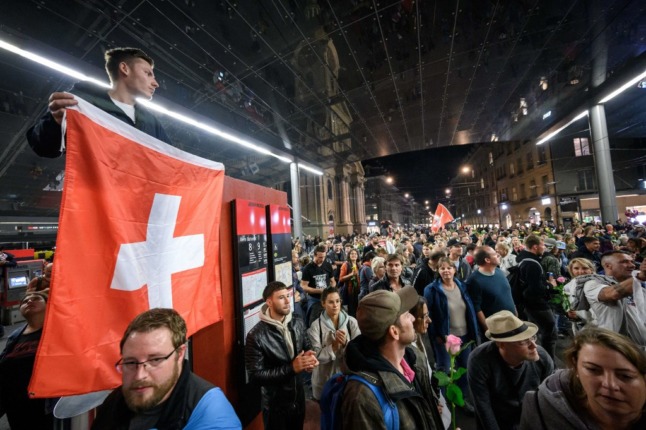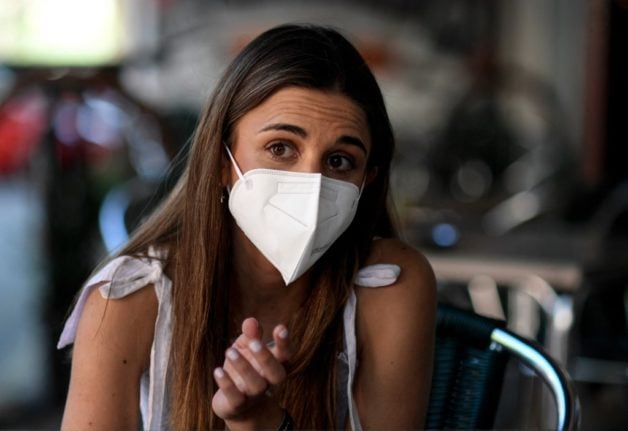The way Switzerland’s population has reacted to various measures the government has put into place since the pandemic started in February 2020 has shifted as time went by.
When the pandemic first struck and the Federal Council responded by ordering a six-week-long confinement in March 2020, along with the shutdown of all non-essential businesses, the Swiss complied with the drastic measures dutifully and with hardly a squeak.
During this difficult time — even though their lives had been disrupted and uncertainty prevailed — people pulled together behind the government, showed community spirit and social responsibility, putting the common good above their own interests.
As Health Minister Alain Berset summed it up at the time, “Switzerland owes its stability to the constant search for a path acceptable to all. This approach proved its worth during the crisis.”
The general compliance with government measures in the early days of the pandemic was in large part due to the unprecedented nature of the new disease and uncertainty over its evolution. But it was also because the Swiss have a high level of trust in their political leaders, as numerous studies have shown.
However, as the pandemic progressed through several waves and new rules continued to be enforced, the compliance started to wane. Lassitude and frustration set in among some population groups, with divisiveness and opposition replacing the sense of solidarity.
What happened?
The catalyst for this major shift in attitude was the vaccination rollout and Covid certificate in 2021, both of which became highly controversal and turned a health issue into a hot-button political matter.
Suddenly, the normally placid Swiss took to the streets to protest against the government’s anti-Covid measures, which they saw as a violation of their civil liberties and constitutional rights.
The movement gained momentum before the November 28th referendum relating to the Covid certificate.
READ MORE: What’s at stake in Switzerland’s Covid referendum on November 28th?
Though 62 percent of voters approved the legislation, opposition to it “reached an unusually high degree of aggressiveness, with death threats against various politicians, which is definitely unusual and linked to the strong polarisation of attitudes fostered by the pandemic”, Pascal Sciarini, professor of political science at University of Geneva told The Local.
Because of Switzerland’s unique system of direct democracy “Swiss people are used to have co-decision rights, and they do not like that the state puts constrains on them”, he said.
“I think this accounts for the fairly large opposition to vaccination and Covid certificate”.
However, Sciarini pointed out this phenomenon should be put into the right perspective.
“There are anti-Covid demonstrations in other countries, and some of them more ‘violent’ than in Switzerland. Therefore, one may assume that this opposition would be as visible as it is in Switzerland if direct democracy existed elsewhere”.




 Please whitelist us to continue reading.
Please whitelist us to continue reading.
Divisivenesses opposition and frustration ate part of democracy .The root ot the problem has been the media and censorship
An hysterical covid task force that has not been transparent with the scientific uncertainties about the effectiveness of interventions has not been helpful. And that journalists do not do their work and question their statements are making things worse.
Direct democracy can be dangerous and result in tyranny of the majority. Still, the Swiss approach has largely been successful. Now that Covid had mutated into what is essentially a bad, very contagious cold, once it rips through the population we should soon see the end of it. Look at what the English have just done. They realize that they can’t stop it but it’s actually not that bad. Whether they say it or not, they’re aiming for herd immunity. That’s how this think is going to play itself regardless of vaccine passports, shutdowns and quarantines.